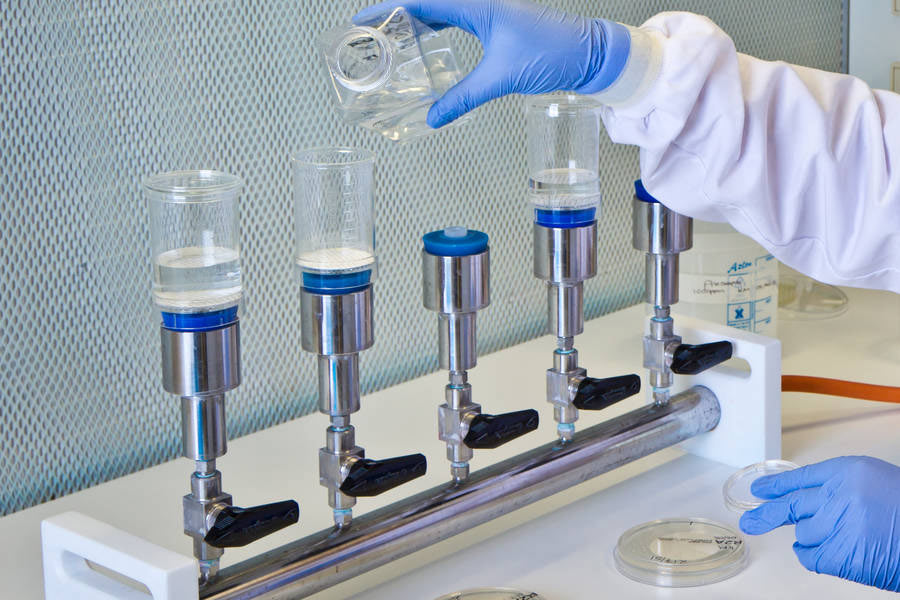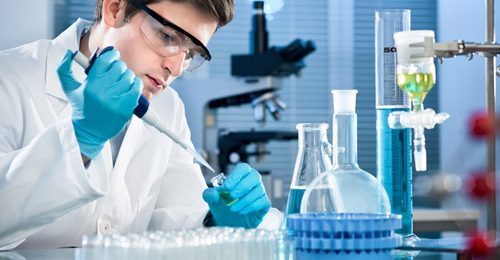Why You Must Select Our Water Testing Service for Your Home
Why You Must Select Our Water Testing Service for Your Home
Blog Article
Learn Just How Water Screening Can Detect Impurities and Secure Your Household's Well-being
Recognizing the value of water testing is crucial for safeguarding your family's health and wellness, as our water system can harbor unseen dangers. From microorganisms to hefty steels, pollutants present severe risks, often undetectable without correct analysis. By discovering the mechanics of water screening, one can discover the invisible hazards lurking in seemingly beautiful water resources. Exactly how do you identify which examinations are needed for your family, and what actions should be taken when potential hazards are revealed? As we browse these concerns, the course to making sure water security and a healthier living setting becomes clearer.
Value of Water Checking
Acknowledging the important function water plays in maintaining life, the importance of water testing can not be overstated. Guaranteeing that water is complimentary from unsafe compounds is important for keeping healthy communities and communities. Water Testing Services Near Me.
Water screening offers as an aggressive step to determine prospective risks that might jeopardize water top quality. Via systematic evaluation, it helps identify physical, chemical, and organic criteria that can position dangers to human wellness. Normal screening permits the early discovery of problems, promoting prompt treatments to avoid extensive contamination and connected health issues.
Additionally, water screening sustains governing conformity, ensuring that water service providers meet well-known safety and security criteria and standards set by governmental authorities. It promotes transparency and accountability, developing public count on the supply of water system. Screening provides useful information that educates water administration techniques, enabling sustainable usage and conservation of this valuable source.
Essentially, water testing is an indispensable tool that safeguards public health and wellness, guarantees regulative adherence, and promotes the lasting administration of water resources. Its significance in safeguarding both areas and individuals can not be taken too lightly.
Typical Water Contaminants
Among the numerous components that can jeopardize water quality, typical water pollutants consist of a variety of physical, chemical, and organic substances that pose substantial risks to human wellness and the environment. Physical impurities often involve sediments or natural products suspended in water, which can impact clarity and taste.
Organic contaminants, mainly germs, infections, and protozoa, emerge from human and animal waste getting in water supply. Virus such as E. coli, Giardia, and Cryptosporidium are well-known for creating stomach diseases and can be particularly harmful to young kids, the senior, and those with endangered immune systems. Nitrites and nitrates, usually originating from plant foods, position one more wellness risk, specifically to infants, possibly resulting in problems like methemoglobinemia or "blue baby disorder."
Furthermore, arising pollutants, consisting of drugs and individual care products, have increased concerns as a result of their perseverance and unidentified long-lasting results. Understanding these pollutants is essential for applying effective water treatment approaches and making sure risk-free drinking water.
Exactly How Water Testing Works
Recognizing the range of contaminants in water highlights the relevance of effective testing methods to secure public health. Water testing is a systematic procedure developed to determine and measure various contaminations that could present dangers to human wellness.
When examples are accumulated, they go through Homepage lab evaluation utilizing different methods. Chemical screening commonly entails spectrometry or chromatography, both of which can recognize and measure certain chemical substances. For microbiological screening, methods such as membrane layer filtration or enzyme substrate examinations are used to detect pathogenic microorganisms. Additionally, physical characteristics like turbidity, ph, and shade are analyzed to provide insight into the total high quality of the water.
The exact methods utilized in water screening depend on the certain pollutants of concern and the water's meant usage. By constantly using these rigorous screening protocols, researchers and public health and wellness officials can ensure the safety and quality of water, thereby securing areas from prospective wellness risks.
Picking the Right Examination
The initial step is assessing the water source-- be it community, well, or surface water-- as each has distinct risks. Community water might require testing for disinfectant by-products, while well water may require testing for nitrates, microorganisms, and heavy metals.
Following, think about current occasions and ecological elements. Neighboring farming activities may demand screening for herbicides and chemicals, whereas commercial zones might require look for chemical toxins. In addition, any type of modifications in water smell, taste, or look should trigger specific screening for common pollutants like lead, chlorine, or biological microorganisms.
Specialist water screening solutions offer thorough packages that target a vast array of prospective contaminants. These sets often straighten with criteria set by the Epa (EPA) or regional wellness departments. For a more customized approach, seeking advice from a water top quality specialist can give understandings into which particular examinations are necessary based upon regional worries and specific wellness demands, making certain the security of your household's health.

Maintaining Water Safety

Along with testing, correct maintenance of water systems plays an important role. This includes servicing and evaluating plumbing systems, storage space containers, and septic systems to protect against leaks or backflow that could present pollutants - Water Testing Services Near Me. Employing water purification systems designed to deal with particular local problems can even more secure versus contaminations, offering read the full info here an extra layer of security
Public recognition and education are similarly vital in preserving water safety and security. Communities ought to be educated about try this potential threats linked with local water resources and the essential actions to minimize them. Urging public involvement in water safety and security campaigns promotes a collective obligation that boosts overall efficiency.
Eventually, a comprehensive strategy that incorporates regular testing, system maintenance, and neighborhood involvement is vital in protecting water top quality. By doing so, families can be assured of secure and tidy water, safeguarding their health and well-being.

Final Thought
Normal water testing is vital for determining impurities such as microorganisms, hefty metals, and chemicals that posture health and wellness threats. By analyzing water examples, unseen dangers can be spotted, making certain the provision of safe alcohol consumption water.
Understanding the importance of water screening is essential for guarding your household's wellness, as our water supply can nurture undetected threats.Water screening serves as a proactive step to recognize prospective dangers that may endanger water high quality.Moreover, water screening supports regulative compliance, ensuring that water providers fulfill well-known security requirements and standards established by governmental authorities. Community water may require testing for disinfectant by-products, while well water might need testing for nitrates, bacteria, and hefty steels.
Routine water screening is a vital element in keeping the high quality of water sources, enabling timely interventions prior to contaminants get to hazardous degrees.
Report this page